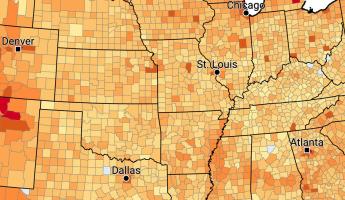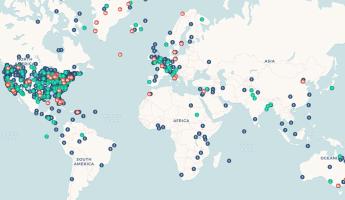Yale Center for Environmental Communication
YCEC conducts research on the psychological, cultural, and political factors that influence environmental attitudes and behavior; teaches students and trains working professionals; informs and engages the public through environmental journalism; and supports a global network of organizations seeking to build public and political will for environmental solutions.
On This Page
The Center for Environmental Communication includes:
- The Yale Program on Climate Change Communication
- Yale Climate Connections
- Yale Environment 360
- The Environmental Film Festival at Yale (EFFY)
- Sage Magazine
- The Yale Environment Review
Teaching and Training
The YCEC provides courses in environmental communication for Yale graduate and undergraduate students and training programs for working environmental professionals. Current environmental communication courses include (all at YSE except as noted):
- Strategic Environmental Communication (Leiserowitz)
- Writing as a Public Scholar (Hanes)
- Writing the World (Klinkenborg)
- Writing Workshop (Cohn)
- Documentary Film and the Environment (Musser, in American Studies)
- Documentary Film Workshop (Musser, in American Studies)
- Global Communication Skills (Vance)
- Professional Skills Course: Environmental Communicator (Vance)
- Delivering Effective Presentations (Reich)
- Food and Documentary (Cheney)
- Introduction to Environmental Data Science (Fenichel, Marlon, Queenborough)
- Environmental Data Visualization and Communication (Marlon, Queenborough)
- Environmental Risk Communication (Schwarz)
- Yale Environment Review (student-led; Kotchen is Faculty Advisor)
- Understanding Environmental Campaigns and Policymaking: Strategies and Tactics (Northrop)
- Ethical Consumption, by Ian Robinson
- Environmental Organizing, by Ian Robinson
- A Toolkit for Communicating Environmental Science, taught by Washington Post Pulitzer Prize-winning reporter Chris Mooney
Beyond YCEC, professional development courses in environmental communication at Yale include Marketing for Sustainability offered by the Yale School of Management's Executive Education program and a course on Communicating Climate Change and Health at the Yale School of Public Health.
Environmental Journalism
The YCEC informs and engages the public in environmental science and solutions through several environmental journalism initiatives.
- Yale Environment 360 is an award-winning online magazine featuring reporting, opinion, and analysis on global environmental issues.
- Yale Climate Connections is a climate change news service featuring articles, videos and a radio program broadcast daily on more than 680 stations and frequencies nationwide.
- The Environmental Film Festival at Yale is a student-run annual film festival showcasing incisive, cutting edge films that highlight the environmental and social issues of our time.
- Sage Magazine is a student-run literary magazine that expands environmentalism through provocative conversation and the arts.
- The Yale Environment Review is a student-run magazine that provides weekly updates translating cutting edge research for a lay audience.
The Yale Program on Climate Change Communication (YPCCC) and the Pulitzer Center for Crisis Reporting have partnered to connect journalists reporting on climate change with leading researchers and students studying climate change communication. YPCCC and the Pulitzer Center bring leading environmental journalists to Yale for faculty and student seminars and public presentations. The Pulitzer Center also supports a competitive fellowship program, giving Yale students an opportunity to work directly with Pulitzer journalists as part of a training program in Washington, D.C. Finally, YPCCC and the Pulitzer Center produce and distribute climate-focused content to a wide national audience.
Supporting A Global Network of Environmental Communicators
The YCEC organizes national and international meetings, conferences and events to convene climate change and environmental leaders and supports a global network of environmental communications scholars and practitioners. Recent examples of YCEC convenings:
- The Environmental Film Festival at Yale hosted its 13th annual festival in Spring 2021 highlighting the urgent global and social issues of our time.
- In April 2021, YCEC presented a talk with Blanca Begert, 2020 YPCCC/Pulitzer Center Climate Reporting Fellow, pairing her with Pulitzer Center reporter Dan Grossman and photojournalist Dado Galdieri to share their research and reporting on complications of tropical forest carbon in Central and South America.
- In 2019, Yale Environment 360 hosted video talks for YSE students with award-winning author and biologist David George Haskell; New Yorker writer Ian Frazier, and Pulitzer Prize winner and E360 contributor Elizabeth Kolbert. And Yale Environment 360 continued to host its annual International Video Contest, with more than 400 entries from six continents in 2020.
- In February 2021, the YPCCC was hosted by the Institute of Technology and Society of Brazil to announce and discuss findings of a study of Brazilian public perception of climate change on which YPCCC advised
The YCEC is supported by the Tides Foundation, the Grantham Foundation for Protection of the Environment, and the MacArthur Foundation.

